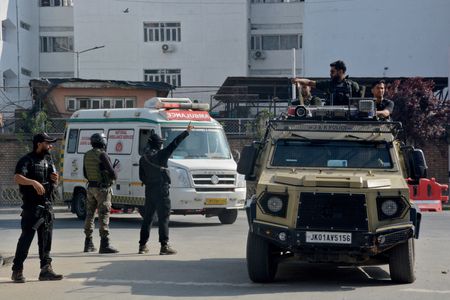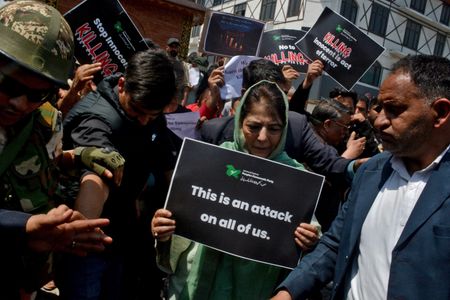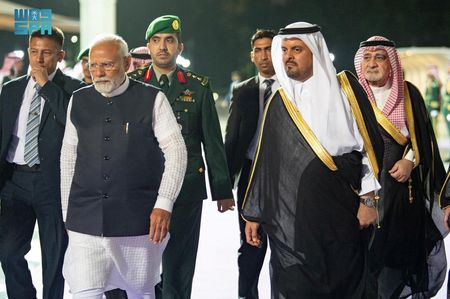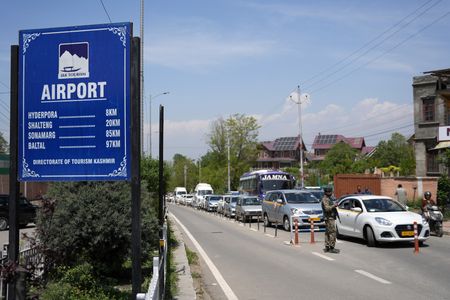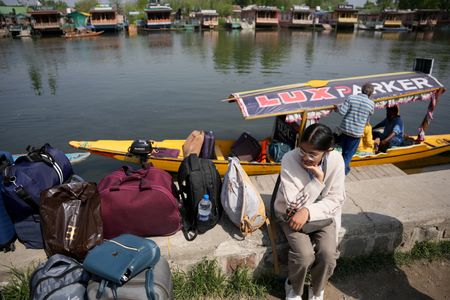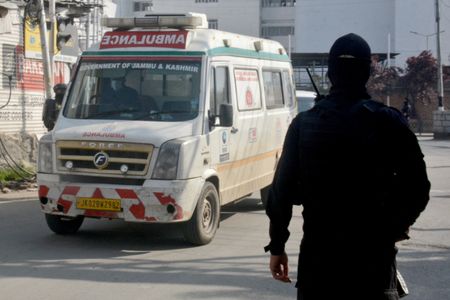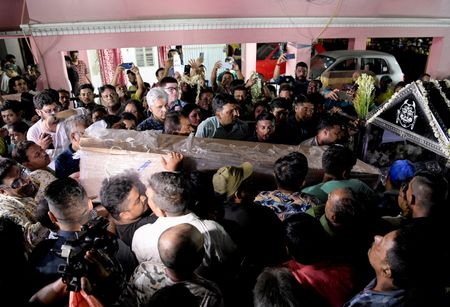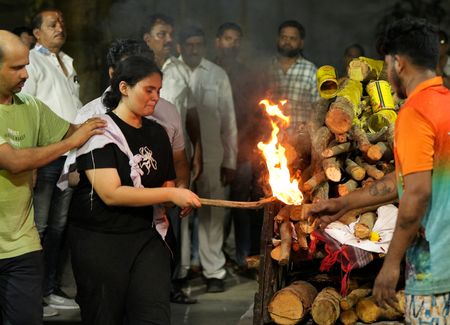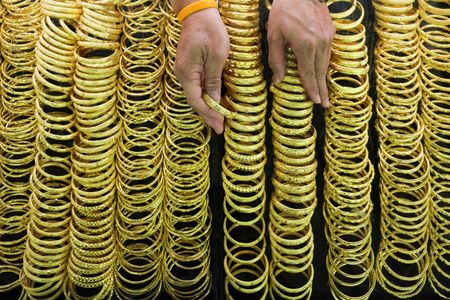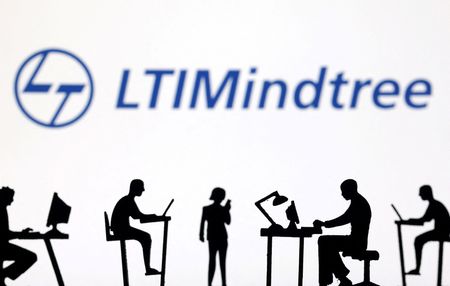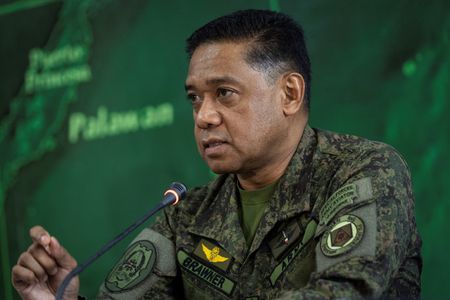By Fayaz Bukhari, Sakshi Dayal and YP Rajesh
SRINAGAR/NEW DELHI (Reuters) -India announced a raft of measures to downgrade its ties with Pakistan on Wednesday, a day after suspected militants killed 26 men at a tourist destination in Kashmir in the worst attack on civilians in the country in nearly two decades.
Diplomatic ties between the nuclear-armed South Asian neighbours were weak even before the latest measures were announced as Pakistan had expelled India’s envoy and not posted its own ambassador in New Delhi after India revoked the special status of Kashmir in 2019.
Pakistan had also halted its main train service to India and banned Indian films, seeking to exert diplomatic pressure.
Tuesday’s attack is seen as a setback to what Indian Prime Minister Narendra Modi and his Hindu nationalist Bharatiya Janata Party have projected as a major achievement in revoking the semi-autonomous status Jammu and Kashmir enjoyed and bringing peace and development to the long-troubled Muslim-majority region.
On Wednesday, Indian Foreign Secretary Vikram Misri told a media briefing that the cross-border involvement in the Kashmir attack was underscored at a special security cabinet meeting, prompting it to act against Pakistan.
He said New Delhi would immediately suspend the 1960 Indus Waters Treaty “until Pakistan credibly and irrevocably abjures its support for cross-border terrorism.”
The treaty, mediated by the World Bank, split the Indus River and its tributaries between the neighbours and regulated the sharing of water. It had so far withstood even wars between the neighbours.
Pakistan is heavily dependent on water flowing downstream from this river system from Indian Kashmir for its hydropower and irrigation needs. Suspending the treaty would allow India to deny Pakistan its share of the waters.
India also closed the only open land border crossing point between the two countries and said that those who have crossed into India can return through the point before May 1.
With no direct flights operating between the two countries, the move severs all transport links between them.
Pakistani nationals will not be permitted to travel to India under special South Asian visas, all such existing visas were cancelled and Pakistanis in India under such visas had 48 hours to leave, Misri said.
All defence advisors in the Pakistani mission in New Delhi were declared persona non grata and given a week to leave. India will pull out its own defence advisors in Pakistan and also reduce staff size at its mission in Islamabad to 30 from 55, Misri said.
“The CCS reviewed the overall security situation and directed all forces to maintain high vigil,” Misri, the most senior diplomat in the foreign ministry, said referring to the security cabinet.
“It resolved that the perpetrators of the attack will be brought to justice and their sponsors held to account…India will be unrelenting in the pursuit of those who have committed acts of terror, or conspired to make them possible,” he said.
There was no immediate response to the Indian announcement from Pakistan’s Foreign Office.
Pakistani Prime Minister Shehbaz Sharif has called a meeting of the National Security Committee on Thursday morning to respond to the Indian government’s statement, Pakistan’s Foreign Minister Ishaq Dar posted on X.
TOURIST BOOM
India’s response came a day after the attack in the Baisaran Valley in the Pahalgam area of the scenic, Himalayan federal territory of Jammu and Kashmir.
The region has been at the heart of India-Pakistan animosity for decades and the site of multiple wars, insurgency and diplomatic standoffs.
The dead included 25 Indians and one Nepalese national and at least 17 people were also injured in the shooting that took place on Tuesday.
It was the worst attack on civilians in India since the 2008 Mumbai shootings, and shattered the relative calm in Kashmir, where tourism has boomed as an anti-India insurgency has waned in recent years.
A little-known militant group, the “Kashmir Resistance,” claimed responsibility for the attack in a social media message. It expressed discontent that more than 85,000 “outsiders” had been settled in the region, spurring a “demographic change”.
Indian security agencies say Kashmir Resistance, also known as The Resistance Front, is a front for Pakistan-based militant organisations such as Lashkar-e-Taiba and Hizbul Mujahideen.
Pakistan denies accusations that it supports militant violence in Kashmir and says it only provides moral, political and diplomatic support to the insurgency there.
“We are concerned at the loss of tourists’ lives,” Pakistani foreign ministry spokesperson Shafqat Ali Khan said in a statement earlier on Wednesday. “We extend our condolences to the near ones of the deceased and wish the injured a speedy recovery.”
SETBACK TO MODI
In Kashmir, security forces rushed to the Pahalgam area and began combing the forests there in search of the attackers.
Police also released sketches of three of the four suspected attackers, who were dressed in traditional long shirts and loose trousers and one of them was wearing a bodycam, one security source said.
There were about 1,000 tourists and about 300 local service providers and workers in the valley when the attack took place, he said.
On Wednesday, the federal territory shut down in protest against the attack on tourists, whose rising numbers have helped the local economy.
Protesters turned out in several locations shouting slogans such as “Stop killing innocents”, “Tourists are our lives”, “It is an attack on us.”
“I want to say to the people of the country that we are ashamed, Kashmir is ashamed,” former Jammu and Kashmir Chief Minister Mehbooba Mufti said. “We are standing with you in this time of crisis.”
Airlines were operating extra flights through Wednesday from Srinagar, the summer capital of the territory, as visitors were rushing out of the region, officials said.
Militant violence has afflicted Kashmir, claimed in full but ruled in part by both Hindu-majority India and Islamic Pakistan, since the anti-Indian insurgency began in 1989. Tens of thousands of people have been killed, although violence has tapered off in recent years.
(Reporting by Fayaz Bukhari; Additional reporting by YP Rajesh, Sakshi Dayal, Nigam Prusty and Surbhi Misra in New Delhi, Sudipto Ganguly and Shilpa Jamkhandikar in Mumbai, and Charlotte Greenfield in Islamabad; Writing by YP Rajesh; Editing by Muralikumar Anantharaman, Raju Gopalakrishnan, Sharon Singleton, Aidan Lewis and Diane Craft)

